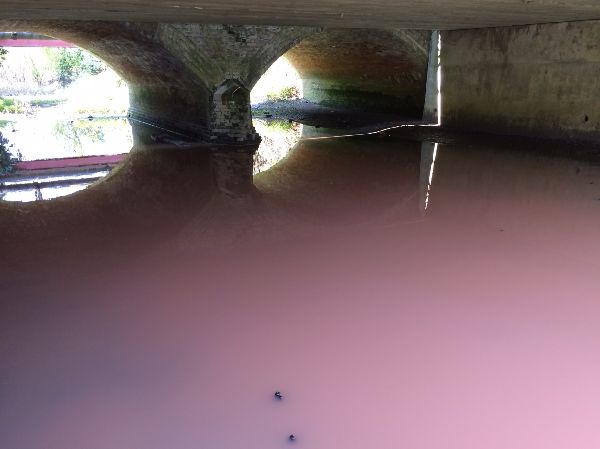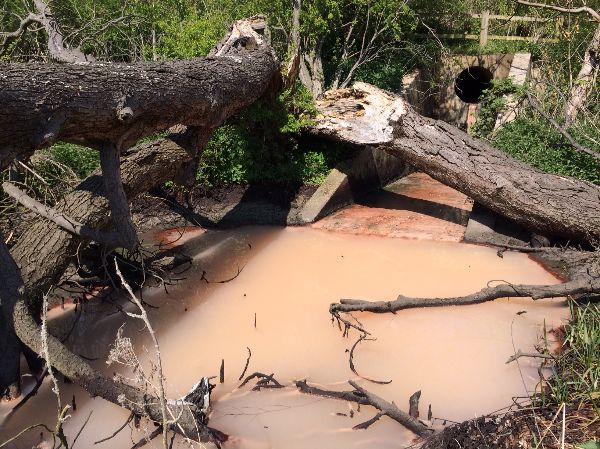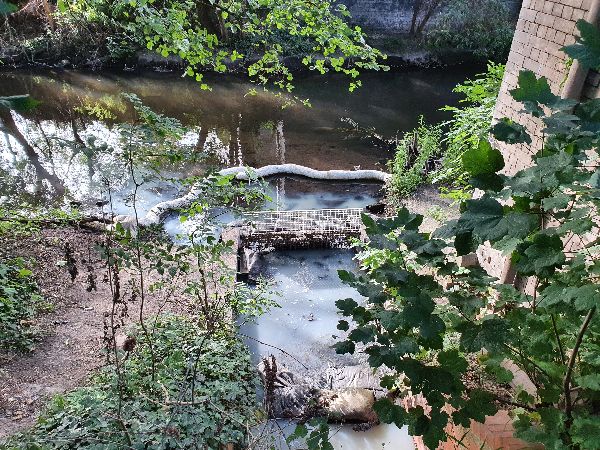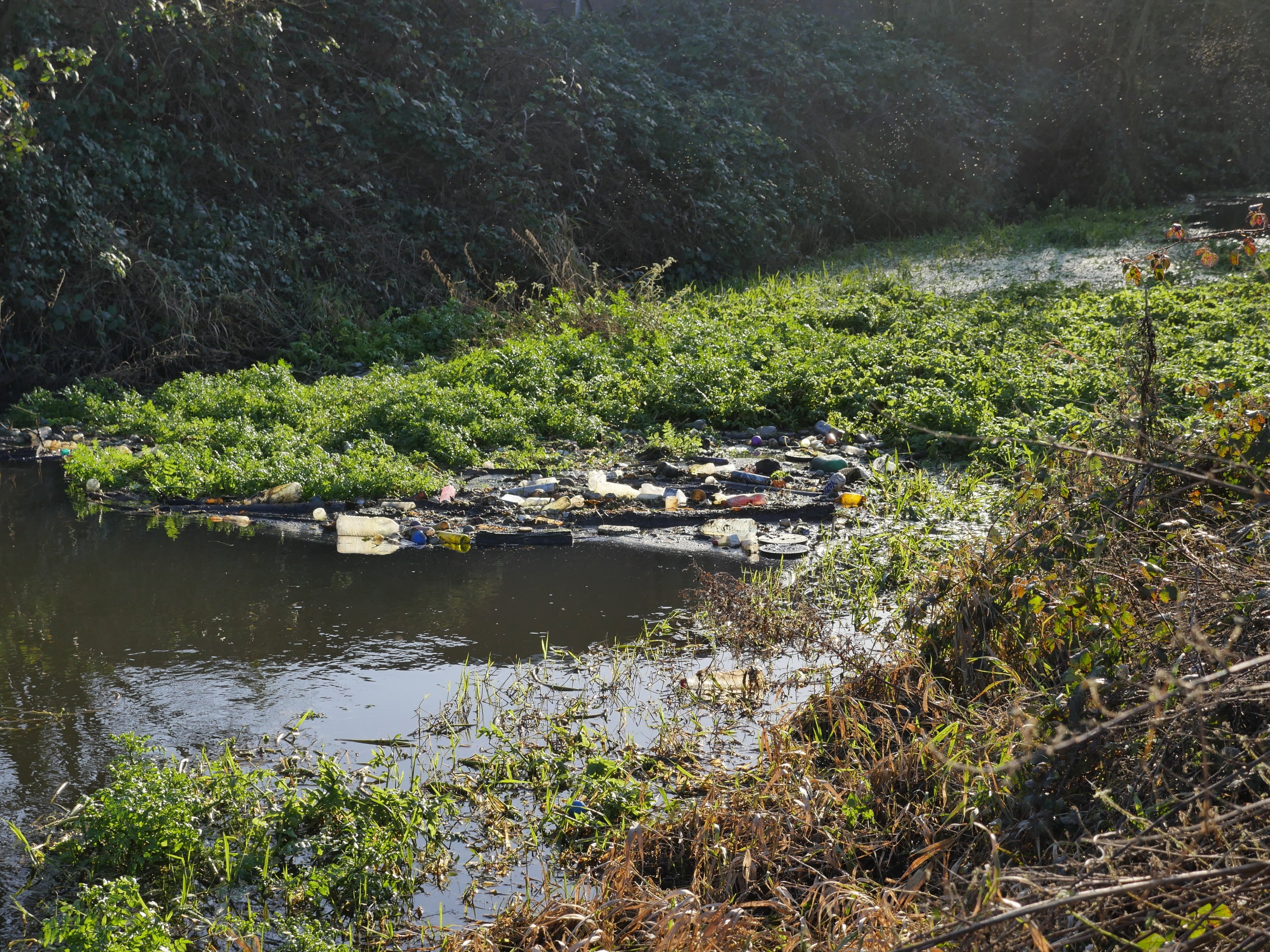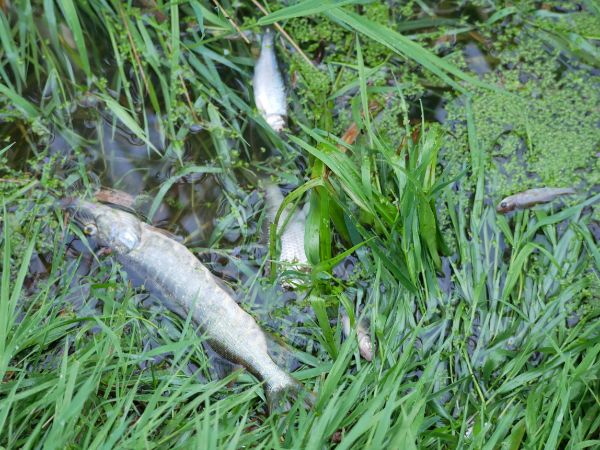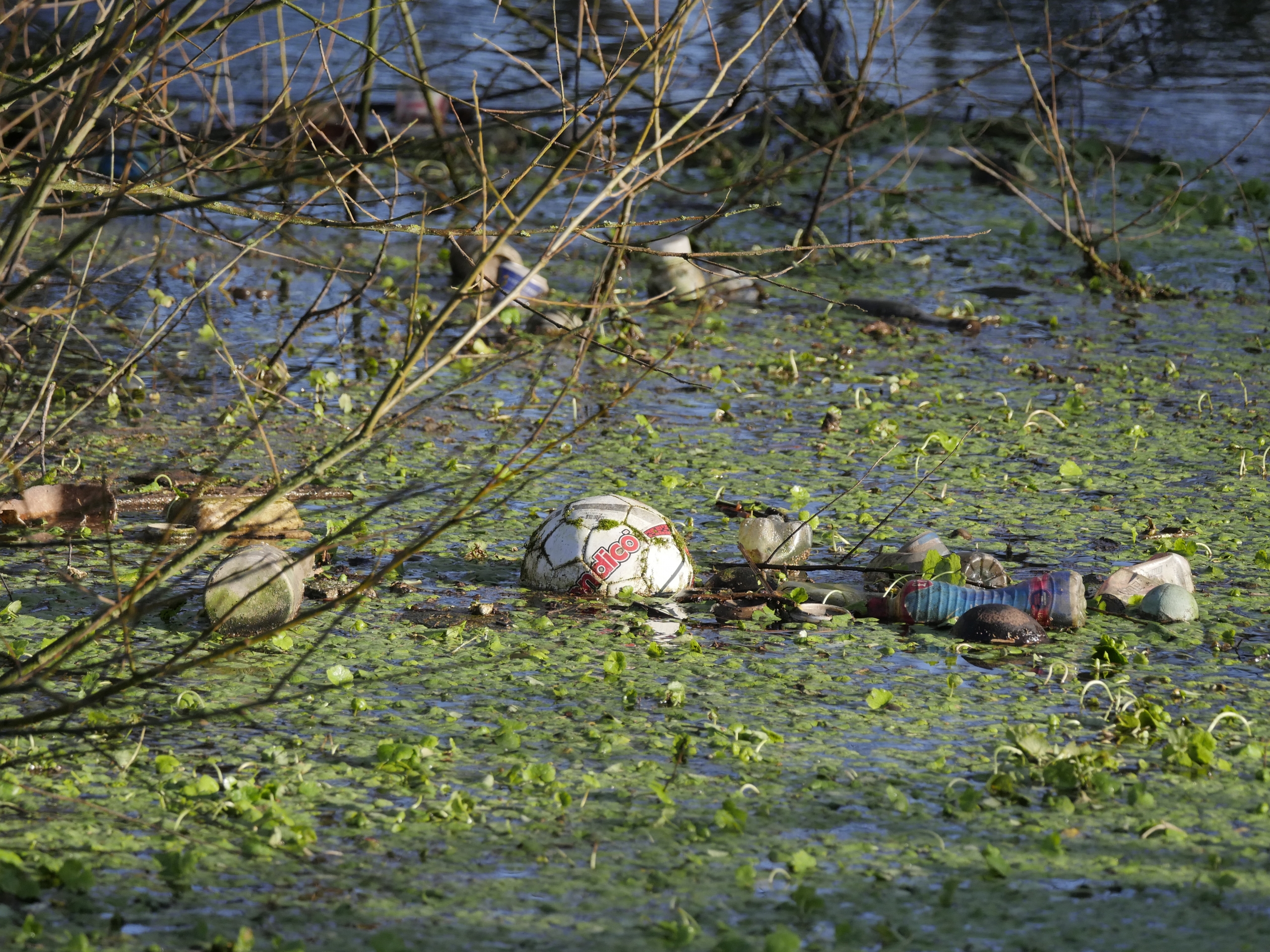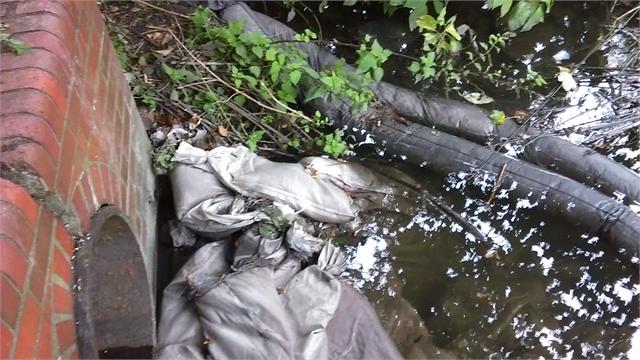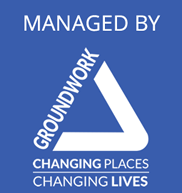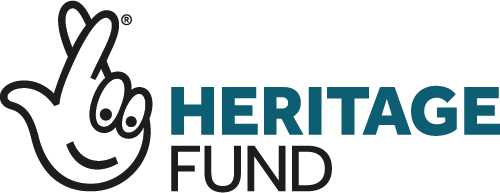We have an amazing and vitally important network of beautiful rivers and waterways in the Colne Valley, and the Park’s River Rangers play a crucial role in keeping them in good condition. Our project manager for rivers, Chloe Crompton describes the Rangers as the heroes of our waterways: their work includes carrying out essential riverfly surveys to help us monitor the health of the rivers, and they are often the first to spot and report any signs of pollution.
This is more important than ever – obsolete sewerage systems are often unable to cope when there has been heavy rain, and this leads directly to pollution entering our rivers. There are also many pollution incidents caused by misconnections between buildings and rivers, toxic water run-off from roads, and contamination from agricultural chemicals, to name just a few challenges. At times it can feel as though our rivers are in a permanent state of crisis.
Pollution incidents in the Colne Valley Park from a range of sources including sewage, road run off with oil, litter and sediment, killing wildlife and reducing water quality.
Unfortunately, whenever there is heavy rain, water companies are legally allowed to release raw sewage into local rivers. This is done to free up capacity in many out-of-date sewerage systems to cope with storm conditions. It represents a very significant problem – sewage pollution can often kill water wildlife, and can make stretches of waterway extremely unpleasant and hazardous.
With obsolete systems and a steady increase in population, water companies are trying to find solutions. Thames Water is building a colossal sewerage tunnel – the Thames Tideway – which will transform its ability to handle waste and water, and in Watford projects are under way to improve treatments and storage. The companies also work with volunteers to monitor sources of pollution and trials for these ‘outfall safaris’ have taken place across London. Training is currently being organised for volunteers, with plans to implement more of the project next Spring, which will also benefit the Colne Valley Park.
Although there are some solutions on the horizon, they have not arrived quickly enough for the health of local rivers to be maintained. We feel much more needs to be done. There is also worrying news that the Environment Agency has endorsed a proposal that could actually weaken the Water Framework Directive, which grades the cleanliness of all water in our river basins.
The good news is that many of the pollution incidents pictured were reported and dealt with, helping to restore the health of the river.
If our rivers are to have a clean future, we really do need local support. If you would like to help, please: –
- Report any pollution incidents to the Environment Agency – it is quick and easy – http://apps.environment-agency.gov.uk/contact/ Please also report this to the Colne Valley Fisheries Consultative https://cvfc.org.uk/pollution/pollution1.php (on the map, click on New Report black box and then zoom on to the correct location). Logging the incident with the CVFC really helps, as it is an important source to update local river users (e.g. anglers and boaters) and is a crucial log of evidence for further action.
- Check your local river after rain for signs of sewage, pollution, blockages or any other problems.
- Volunteer as a River Ranger https://www.colnevalleypark.org.uk/river-rangers-project/
- Help outfall safari in spring 2021 (follow our Facebook and Twitter pages, to stay in touch with all volunteering opportunities or sign up to our newsletter on the Home page).
- Consider supporting us to improve and protect the Park by becoming a Colne Valley Park Friend https://www.colnevalleypark.org.uk/who-champions/trust-friends/
- Ensure your rubbish is put in a bin; if the bin is full, please take it home with you (rubbish is often blown into rivers, polluting them and harming wildlife.
Together we can all do a bit to support the wildlife and biodiversity of the Colne Valley Park and help “Keep the Colne Valley Park beautiful”, for future generations.
You can read more about the subject here:
The rivers in the Colne Valley are important to us and contribute to our beautiful landscape. We do what we can to look after this valuable resource, but there are issues that require more support and we have written to the 9 MPs who cover the Colne Valley Regional Park, asking them to support the bill to tackle river pollution from untreated sewage and improve water quality. This is sadly a big problem in the River Colne. Please find a copy of the letters here: https://www.colnevalleypark.org.uk/wp-content/uploads/2020/11/SewageBillOct2020.pdf
and here our letter to Sir James Bevan Chief Executive The Environment Agency calling for action https://www.colnevalleypark.org.uk/wp-content/uploads/2020/11/2020sept_EA.pdf
The Colne Catchment is a place where people are working together to protect and improve the water environment for everyone. http://www.colnecan.org.uk/
http://www.riverchessassociation.co.uk/news/83/57/Sewage-Pollution-Continues.html – sewage in the River Chess, part of the Colne Valley catchment.
https://www.theriverstrust.org/what-we-do/how-healthy-are-our-rivers/
We think rivers are amazing and are a vital resource that we do our best to protect. The environmental audit committee tells us, “With unacceptable levels of water pollution coursing through our rivers, the impact to human health, and the ability for precious ecosystems to thrive are growing areas of concern “. Read more in the below article from The Telegraph…
There are several techniques available to help reduce the effects of river pollution. Once an issue has been reported, sand bags, for example, can be placed around a polluting outfall, removing pollutants by effectively filtering the water as it passes through them.
